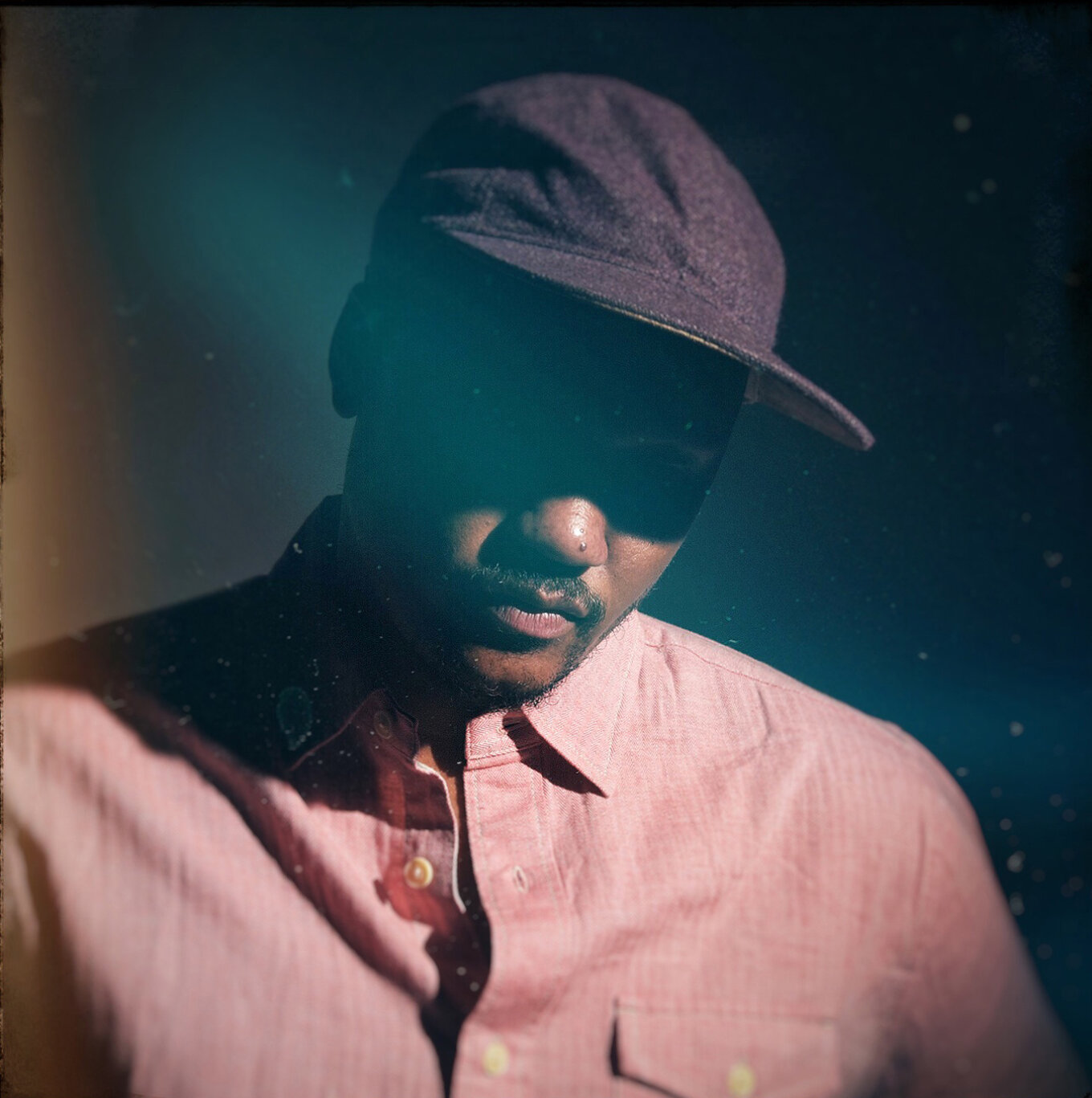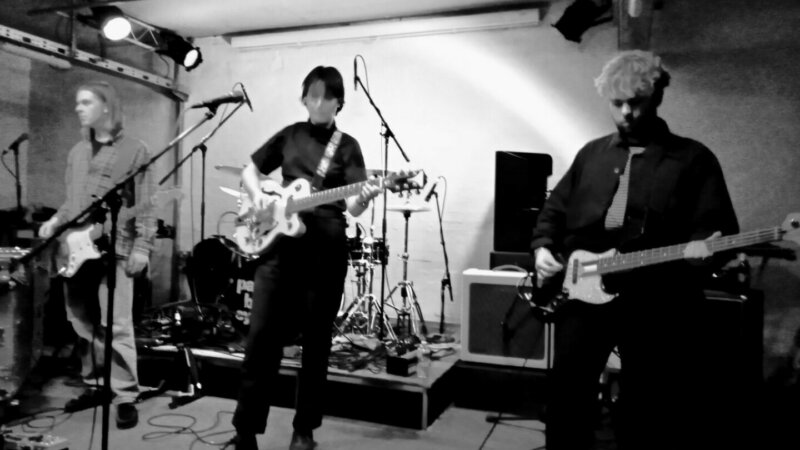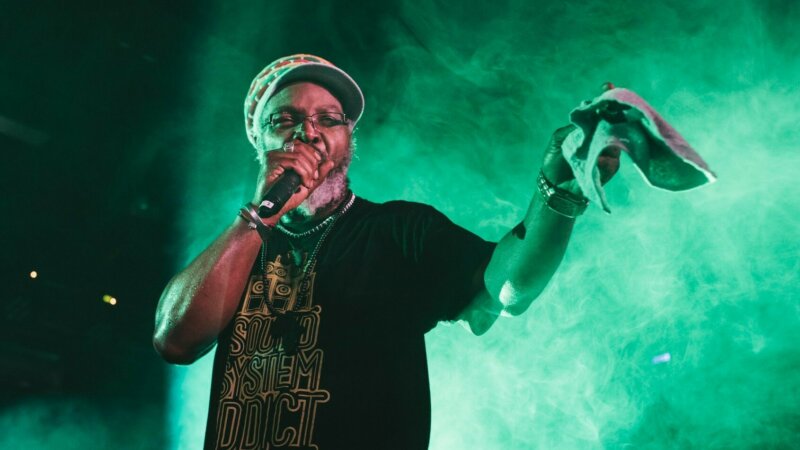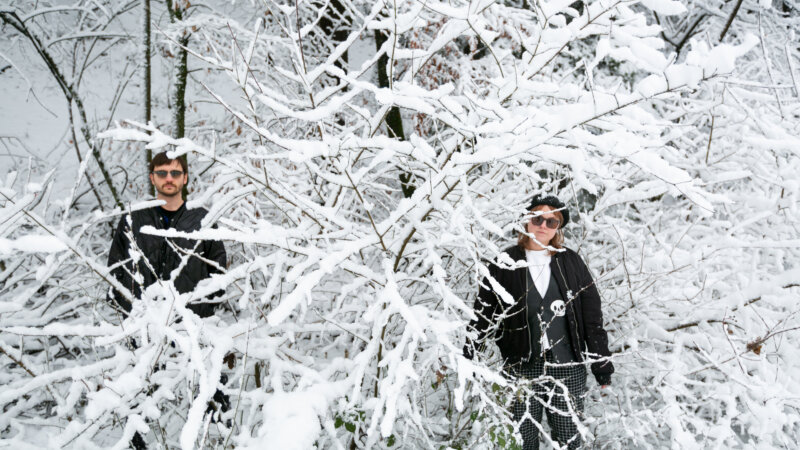Son Little Modern-day blues man
It’s a cool Manchester evening when I catch up with Son Little in the bowels of Soup Kitchen.

Son Little
Shervin LainezReinventing oneself is never a light decision to make, but it’s one that’s given new drive to Philadelphia resident Aaron Earl Livingston. Until recently best known as the voice of ‘Sleep’ on The Roots’ 2011 album Undun, and as half of the Icebird duo with esteemed beat maker RJD2, Aaron also carved out a niche for himself as an independent bluesman, who the likes of Okayplayer.com have referred to as a modern-day Bob Marley.
Now signed to Anti-, a sister label of Epitaph, and pouring his heart out under the name Son Little, his debut EP is entitled Things I Forgot. Consisting of a trio of songs written as the concept of Son Little was being born, together with two that now fit that identity, it’s a beautiful statement of intent that promises much more to come. It’s a cool Manchester evening when I catch up with him in the bowels of Soup Kitchen, hunched over a table in poncho and fedora, softly spoken and a little groggy, reflective and eager to share.
How would you sum up Son Little for those unfamiliar with you?
I’m a songwriter and a soul singer, an RnB singer. Among other things. That’s probably the gist of it.
‘Cross My Heart’ [Son’s debut track] was written around the time of Trayvon Martin’s death and is an homage to the departed. Does it remain pertinent now?
It does. Obviously we’ve been playing these shows away from home, but I’m hearing about things that are going on in the case of Ferguson. You know, it’s really disappointing. I wrote the song probably a little more than a year ago. Not that I expected this scenario to end or be fixed, but to have it become more and more relevant is extremely disappointing. I’ve been finding myself on stage really thinking about those things.
Does travelling offer different perspectives around that?
You can’t help, when you go to new places, but to pick up on the differences, probably first. I think in some ways the differences are subtle, but I know in a certain way as a black male in America you feel like there’s a target on your back. This is after centuries of struggle to reverse that scenario. I don’t feel that here, or anywhere we’ve gone. Not that it’s perfect. Everyone gets along and there’s no hate or prejudice or racism, but I don’t feel like there’s a target on my back because of my race. To come here and be removed from it somewhat, feel that type of relief and then look at the news, and see, yep, America’s at it again. Not that it ever stops. But it’s kind of embarrassing to feel like the place you live is... stuck. That’s how it feels. It’s like we’re stuck with this mentality that does not want to let go.
Does that feeling inspire you to write?
It does. I feel like I’m full of words and music right now. I’ve seen a lot of things since we left and had a lot of time to think. Maybe not that much time to actually write the way I would normally do it – if I’m not at the gig or going to the gig, I’m asleep, and I’m away from all my gadgets and toys – but yeah, it’s an inspiring thing to meet so many people and see so many things you’ve never seen before, to get that perspective away from your home.
You’ve left your Aaron Livingston archive up on Bandcamp. Are there parallels to be drawn between Son and Aaron?
[Laughs] To be honest, I forgot that was even up there. I thought about it not too long ago actually. I couldn’t remember if they were still there or not. Obviously they’re connected…
Nothing to hide then?
Not at all. Those recordings are very cool to me, very important to me. They’re really the building blocks for what I’m doing now. When I listen to them I hear little flashes of the things that I’ve come to build now.
I imagine working with The Roots would have honed your live skills and working with RJD2 your production set?
That’s pretty accurate. Very accurate, even. I mean, The Roots – even just seeing them from the side and seeing the preparation, watching the sound check, rehearsal. I was on stage with them a few times. The moments on stage doing the show are probably on par with the moments I spent rehearsing. It’s like a ‘how to’ instruction manual. My experiences with them have been incredibly educational for me. And like you said, RJ is like a wizard. His sense of production in the studio is just... He’s really a tirelessly hard worker and very open as for his philosophy and approach to creating things. He’s very open to ideas. He’d be like, “Is this cool or not?” and you’d say, “Na,” and he’d get rid of it. “We’ll do another. We’ll do it again.” That’s a hard thing to learn. That’s a lesson I learned from both of those artists. Both have a very keen understanding of that.
So what about the genesis of the Son Little idea? Was it a full-length album you had in mind first?
That’s a good question, because initially when the idea was developing I had a lot of songs – I always have a lot of songs – that I pictured as a full-length, originally. It would have been Aaron Livingston’s greatest hits, Volume One [find Volumes 0 and -1 on his Bandcamp page]. Once I started working with Anti-, I sort of re-imagined it.
Why was that?
I got in a space where I felt like I had a lot more material at my fingertips that was ready to be expressed. And I’m always trying to make it better. It felt like a different thing altogether, like starting from zero. The way it started to crystallise was coming up with ‘Cross My Heart’. It felt different to me. Maybe it was a subtle difference. I had the name Son Little by this point and that’s a very different way for me to do things. I have this name, what is that?
I was sort of brooding on this idea of just creating an entity from scratch. The idea of it came together before the music. I didn’t really set out to make the music any particular way. Once I’d made ‘Cross My Heart’, I felt like, here it is. My gut told me to just continue and see where that took me. ‘Your Love Will Blow Me Away’ was the next thing I wrote, and then ‘The River’.
The other two songs are things that I had sort of lying around, that I would love one week and not the next. I felt like once I looked back through the lens of where we’re at now, those things fit to me. The tone, the lyrics, the energy, it all fit with what I was doing and that changed my perspective on what I’m doing.
So what’s the masterplan? To be brutal, how will you continue to make a living out of this?
I think you gotta be on your toes and be creative making money. For the most part record sales are not there and you’re not going to make money that way. For most people it’s always been pretty questionable at best if you were going to make any money from your record. Touring is obviously really important, if you can [product] place things it can be really helpful, but all that stuff to me goes against the way I’ve always done everything, so I wouldn’t catch myself doing that sort of thing. As far as format goes, I’ve always loved great albums and that’s always going to be the goal.
I heard your mum gave you a slap when she heard you singing ‘Purple Rain’. Is that on your list of favourite albums?
Haha. It’s right up there. I would say Electric Ladyland. That’s hard actually, because I could also say Band of Gypsys. Nas, Illmatic is one. Amazing record. In that vein, Low End Theory by A Tribe Called Quest was big for me.
Why that over the others?
Something about the overall, really cool vibe I think. I love most of their stuff. All of it, really. That record has a lot of samples from a specific time period, an era of jazz that I heard a lot growing up, too. That’s a very perfect synthesis of things I felt close to. New thing – hip hop – combined with this thing ingrained in my head. Maybe they grew up with that, those records were in their houses too. I heard [John Coltrane’s] Blue Train 80 million times - that’s ingrained, part of my body. Any time I hear something that really captures that kind of mood, it does something to me. Illmatic is similar in that way, because it has so much of that DJ Premier style of all these little pieces of all this great, great music. Nirvana, Nevermind, is important for me. Just kicks ass. There’s no bad song on that album.
Have you come up with a name for the album and is it going to get a vinyl release?
I got an email about the EP and realised I had forgotten to give them the name, hence Things I Forgot. Son Little was like that – sometimes you come up with a name for something. It’s the idea first and the name comes to mean something after. You name a kid. You don’t know anything about the kid. The kid starts to grow and the name means something. Maybe most things are like that.
I would love to get something on vinyl from here on out. I love listening to vinyl. There’s something different about putting a vinyl record on a player. I know that whenever I listen to music that way, I’m much more likely to listen to something multiple times. Is that ‘cause I’m too lazy to get up and change it? Maybe. But I think that’s a real test of how you really feel about something. Liner notes, something to read while you listen to it. It’s an experience. That’s part of it, definitely. You might not think about that all the time, but you miss them.







